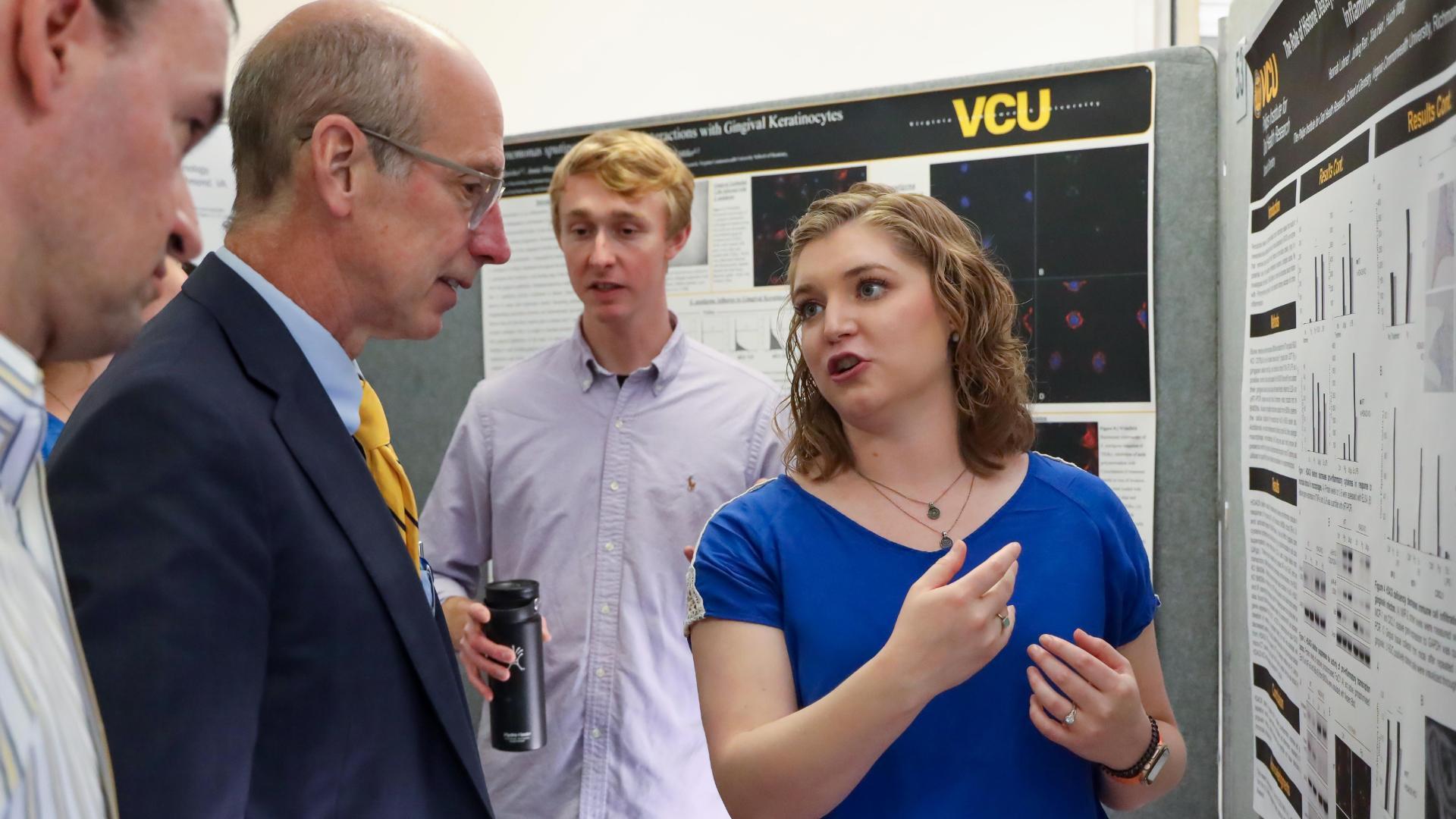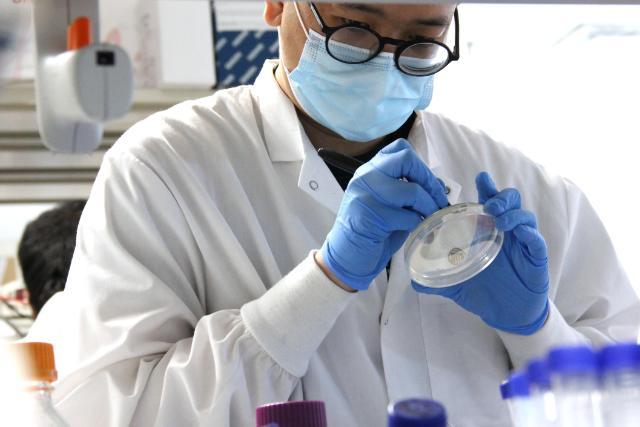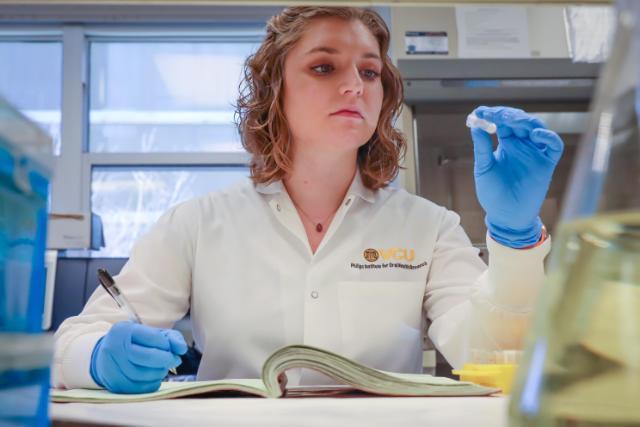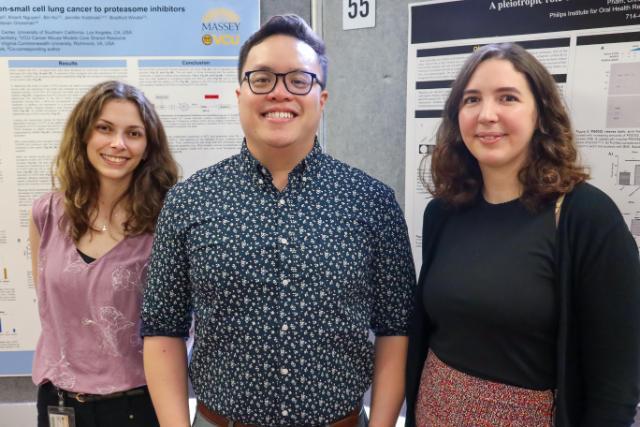Ph.D. programs at the Philips Institute
The OHR Ph.D. program at the Philips Institute utilizes the oral cavity as an easily accessible model system to study cancer and infectious diseases. The program offers a Ph.D. with concentrations in cancer, and infection and immunology. Graduates hold faculty positions in academia and senior scientist positions in industry and regulatory affairs.
Students in both concentrations benefit from training in the use of AI-driven techniques, including machine learning and deep learning, to analyze single-cell and spatial genomics to map cell-cell and host-microbe interactions and explore their roles in chronic inflammation and head and neck cancers.
All students take courses in scientific integrity, grant writing and career development. Students write and submit an F31 Fellowship as part of their PhD candidacy examination. They present their work annually in our internal seminar series, at our annual research symposium and at national and international conferences.
For all enquiries please contact the program director Oonagh Loughran, Ph.D. at oloughran@vcu.edu.
Concentrations
This concentration provides research training in areas of cancer research that reflect our faculty expertise. This includes the study of fundamental cancer biology, abnormal signaling events in cancer, micro-environmental regulation in cancer progression, neuroblastoma, viral oncogenesis, the development of new personalized medicine for solid tumors, and the interaction between the microbiome and cancer.
Didactic courses can be tailored to a student's career goals and research projects. Cancer courses include:
OCMB 702 Infection, Immunology and Oral Cancer
BIOC 605 Molecular Biology
BIOC 652 Cancer Biology Journal Club
IBMS 635 Cellular Signalling
MICR 684 Molecular Biology & Pharmacology of Cancer
OCMB 791 Advancing Precision Health Through Single-Cell and Spatial Technologies
This concentration provides research training in areas of microbiology that reflect our faculty expertise. This includes bacterial interactions and biofilm formation, bacterial virulence, host pathogen interactions, inflammation and the immune response to bacterial challenges, and how viral and bacterial interactions influence immune regulation and tissue architecture in both health and disease.
Didactic courses can be tailored to a student's career goals and research projects. Microbiology courses include:
OCMB 701 Oral Microbiology and Disease
MICR 505 Immunobiology
MICR 515 Principles of Molecular Microbiology
MICR 605 Microbial Physiology and Genetics
MICR 616 Mechanisms of Viral and Parasite Pathogenesis
MICR 618 Molecular Mechanisms of Microbial Pathogenesis
MICR 686 Advanced Immunobiology
OCMB 791 Advancing Precision Health Through Single-Cell and Spatial Technologies
We offer a dual D.D.S. Ph.D. degree designed for individuals interested in translating oral research to the clinic. These clinician-scientists will help bridge the gap between basic and clinical science in the field of dentistry.
Access to new technologies
Within the Philip's Institute, we can use advanced microscopy techniques to track changes in cell and tissue growth and morphology and track how diseased tissue responds to new treatments.
Using cell sorting systems, we can analyze thousands of cells at once, enabling the study of complex immune cell populations within tumors, the isolation of rare subtypes, and evaluation of how cancer cells and viral or microbial infections interact with the immune system.
Using laser microdissection and multiplex immunofluorescence, we can isolate tissues and visualize gene and protein expression at a single-cell level. This spatial biology approach helps us understand the complexity and dysregulation of tissue organization in infected or cancerous tissue. These technologies can help predict patients' response to treatments and should lead to advances in personalized medicine.
Students will also have access to all of the university wide research cores including Center for the Biological Data Science, The VCU Center for Drug Discovery, and the Massey Comprehensive Cancer Center.



